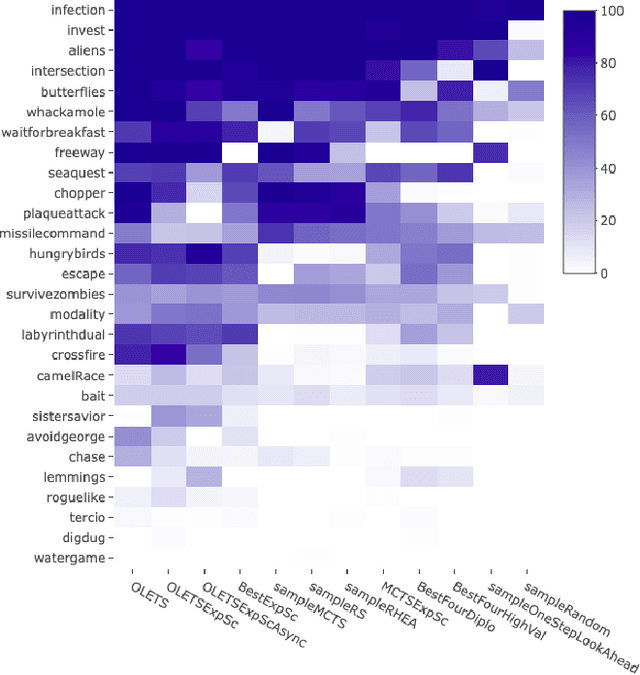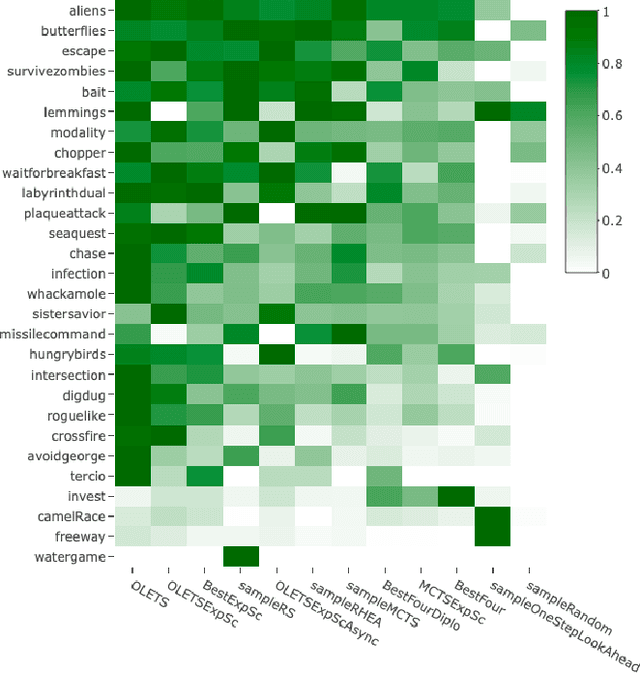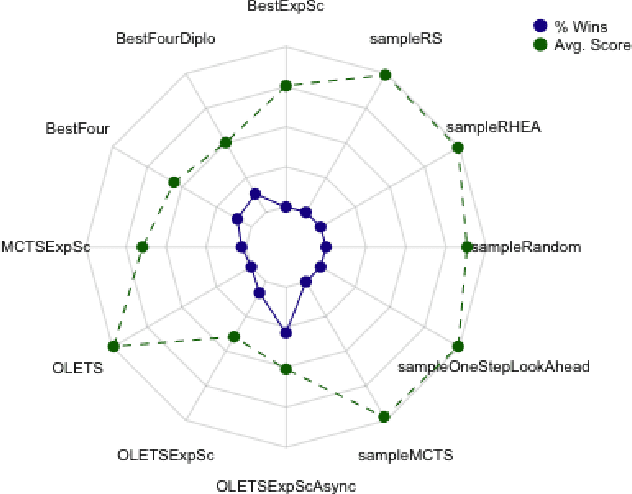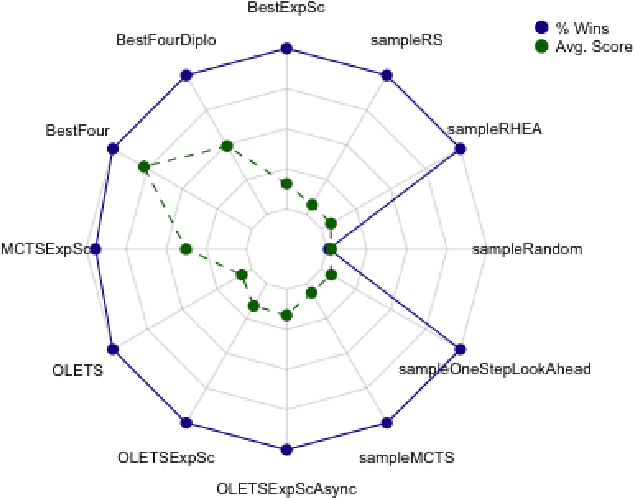Cristina Guerrero-Romero
Generating Diverse and Competitive Play-Styles for Strategy Games
Apr 17, 2021



Abstract:Designing agents that are able to achieve different play-styles while maintaining a competitive level of play is a difficult task, especially for games for which the research community has not found super-human performance yet, like strategy games. These require the AI to deal with large action spaces, long-term planning and partial observability, among other well-known factors that make decision-making a hard problem. On top of this, achieving distinct play-styles using a general algorithm without reducing playing strength is not trivial. In this paper, we propose Portfolio Monte Carlo Tree Search with Progressive Unpruning for playing a turn-based strategy game (Tribes) and show how it can be parameterized so a quality-diversity algorithm (MAP-Elites) is used to achieve different play-styles while keeping a competitive level of play. Our results show that this algorithm is capable of achieving these goals even for an extensive collection of game levels beyond those used for training.
Ensemble Decision Systems for General Video Game Playing
May 26, 2019



Abstract:Ensemble Decision Systems offer a unique form of decision making that allows a collection of algorithms to reason together about a problem. Each individual algorithm has its own inherent strengths and weaknesses, and often it is difficult to overcome the weaknesses while retaining the strengths. Instead of altering the properties of the algorithm, the Ensemble Decision System augments the performance with other algorithms that have complementing strengths. This work outlines different options for building an Ensemble Decision System as well as providing analysis on its performance compared to the individual components of the system with interesting results, showing an increase in the generality of the algorithms without significantly impeding performance.
 Add to Chrome
Add to Chrome Add to Firefox
Add to Firefox Add to Edge
Add to Edge